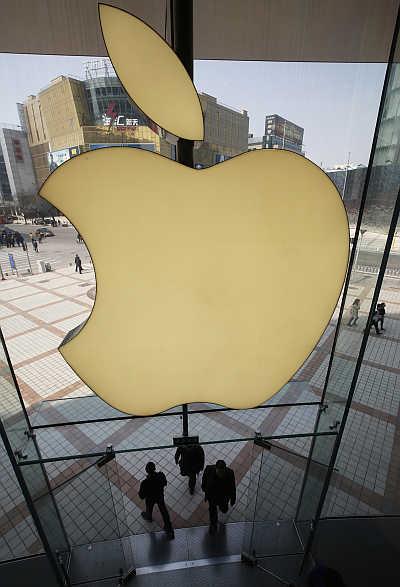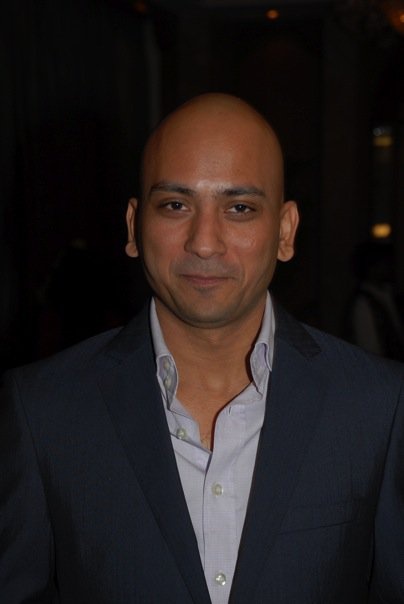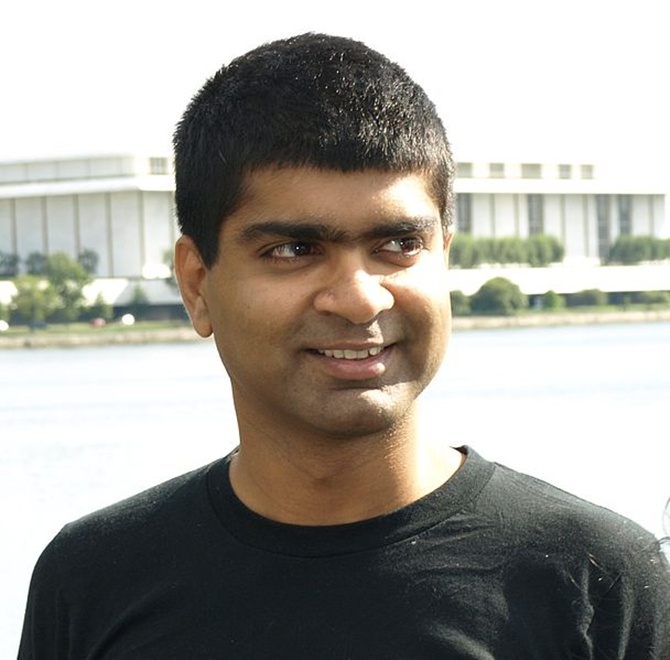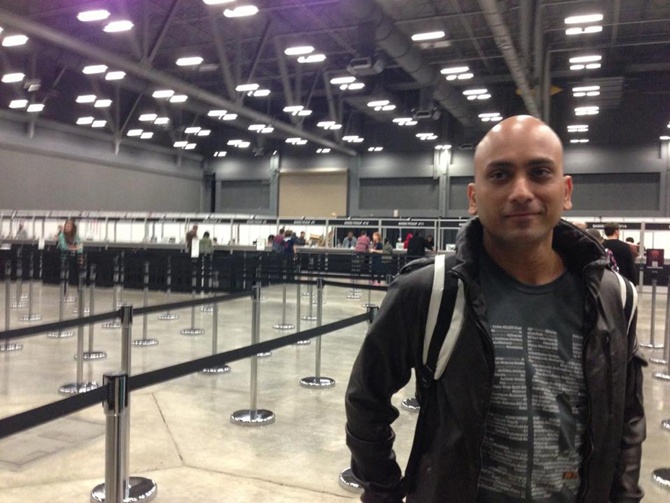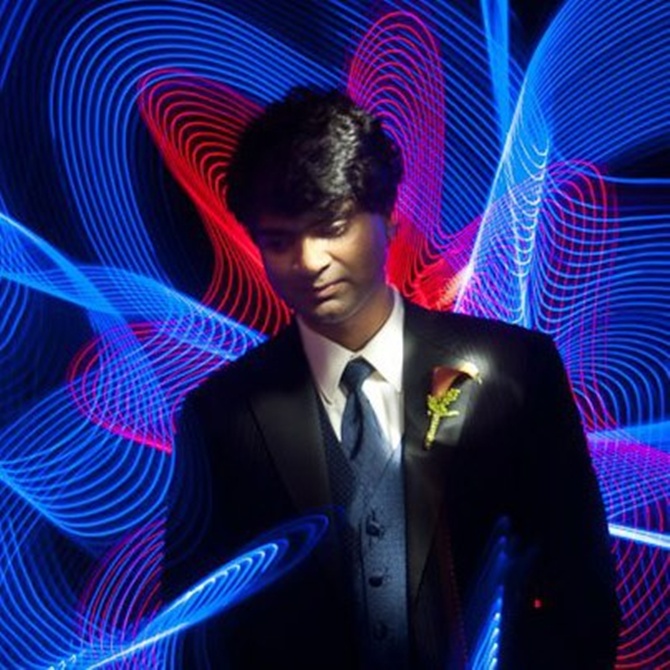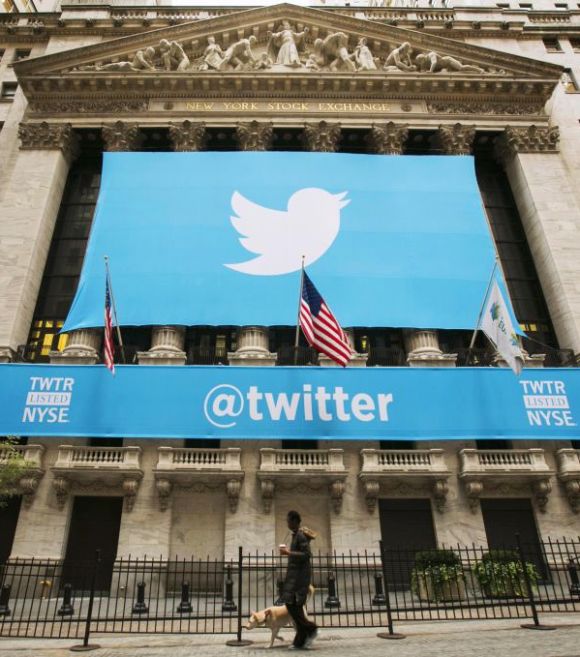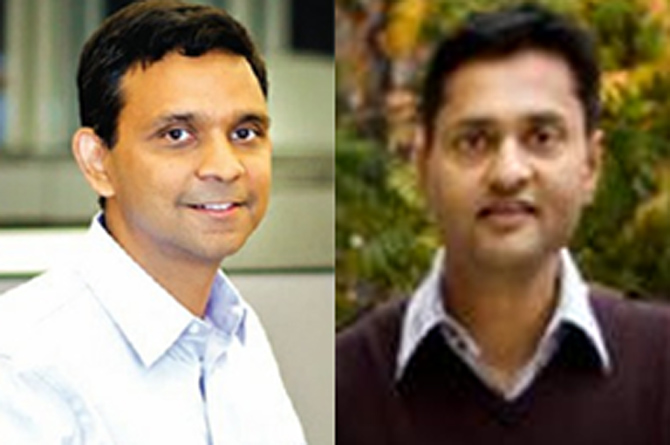 | « Back to article | Print this article |
Meet the Indian techies who sold their firm to Apple
Vipul Ved Prakash describes himself as a “hacker, entrepreneur, desert rat” on his Twitter profile. Rishab Aiyer Ghosh, on the other hand, calls himself the “invisible hand at Topsy” and the “invisible head of Collaborative Creativity Group”.
Until last week, Vipul Ved Prakash, 36, and Rishab Aiyer Ghosh, 38, were just techies known for their ardent support for the free software movement and a survey on free software that they published in May 2000.
But earlier this week, they shot into limelight when consumer electronics giant Apple announced it was acquiring the duo’s social search and analytics firm, Topsy Labs, for a whopping $200 million.
In one clean sweep, the deal catapulted the co-founders of the US-based company into the league of successful Indian-American tech entrepreneurs, making yet another pair of new faces of India’s software talent.
Click NEXT to read more...
Meet the Indian techies who sold their firm to Apple
Prakash and Ghosh founded Topsy, a social analytics tool, in 2008 with two other friends, Gary Iwatani and Justin Foutts.
Topsy provided instant answers to critical business questions by analysing public conversations on real-time basis.
The company is headquartered in San Francisco and has 40 employees with offices in San Francisco and Washington DC. It raised over $27 million in venture capital from BlueRun Ventures, Ignition Partners and others.
Interestingly, Prakash, who was born in New Delhi, dropped out of St Stephen’s College where he was studying science “for want of undisturbed coding time”, according to MIT’s profile of its pick of under-35 innovators, which includes him.
He first attracted attention for a creating a collaborative anti-spam system called Vipul’s Razor.
Click NEXT to read more...
Meet the Indian techies who sold their firm to Apple
In 2001, Prakash co-founded another California-based company, Cloudmark, which provides protection against spam, viruses, phishing and other computer threats. Cloudmark builds email security software for consumers and enterprises based on the collaborative filtration technology of Vipul's Razor.
Prakash describes himself as a “hacker, entrepreneur, desert rat” on his Twitter profile. Ghosh, on the other hand, calls himself the “invisible hand at Topsy” and the “invisible head of Collaborative Creativity Group”.
He was a journalist in India before becoming a computer scientist and an open-source software advocate.
Click NEXT to read more...
Meet the Indian techies who sold their firm to Apple
Prakash and Ghosh’s survey on open software, Orbiten Free Software Survey, which they published in May 2000, is considered their first successful attempt at making a model for contribution to open-source projects.
The software and methodologies that the techie duo had developed for the survey are widely used in open-source research today.
Click NEXT to read more...
Meet the Indian techies who sold their firm to Apple
Their company, Topsy Labs, operates its own data centres, and is also a certified partner of micro-blogging website Twitter.
It maintains an extensive index of tweets (posts on Twitter), numbering in the hundreds of billions, dating back to the inception of the website in 2006.
The tool is used by various global marketing, news, entertainment, and financial organisations to obtain real-time insights.
Click NEXT to read more...
Meet the Indian techies who sold their firm to Apple
Experts say the acquisition of Topsy will help Apple get a better grasp on trending topics on Twitter, which could help the company sell more advertising on their products like iPhones and iPads.
Even as Topsy is a product developed in the US, Prakash and Ghosh’s Indian counterparts are likely to derive joy from the news of the acquisition. Over the past few years, several Indian entrepreneurs have caught the attention of major global companies.
Click NEXT to read more...
Meet the Indian techies who sold their firm to Apple
Among others, social networking giant Facebook is in talks to acquire Bangalore-based product start-up, Little Eye Labs.
In 1998, US-based online retail giant Amazon had acquired online comparison shopping portal Junglee for $250 million.
Junglee was founded by two Indians, Anand Rajaraman and Venky Harinarayan.
Click NEXT to read more...
Meet the Indian techies who sold their firm to Apple
More recently in 2012, LinkedIn announced the acquisition of professional content sharing platform, SlideShare, for $119 million in cash and stock. This company’s co-founder was an Indian-American, Rashmi Sinha.
According to a 2012 study by Kauffman Foundation, a non-profit body that focuses on education and entrepreneurship, 33.2 per cent of the co-founders of engineering and technology companies incorporated in the US during the last six years comprised Indians, an increase of about 7 percentage points from what a similar study that examined immigrant-founded companies between 1995 and 2005 had found.
